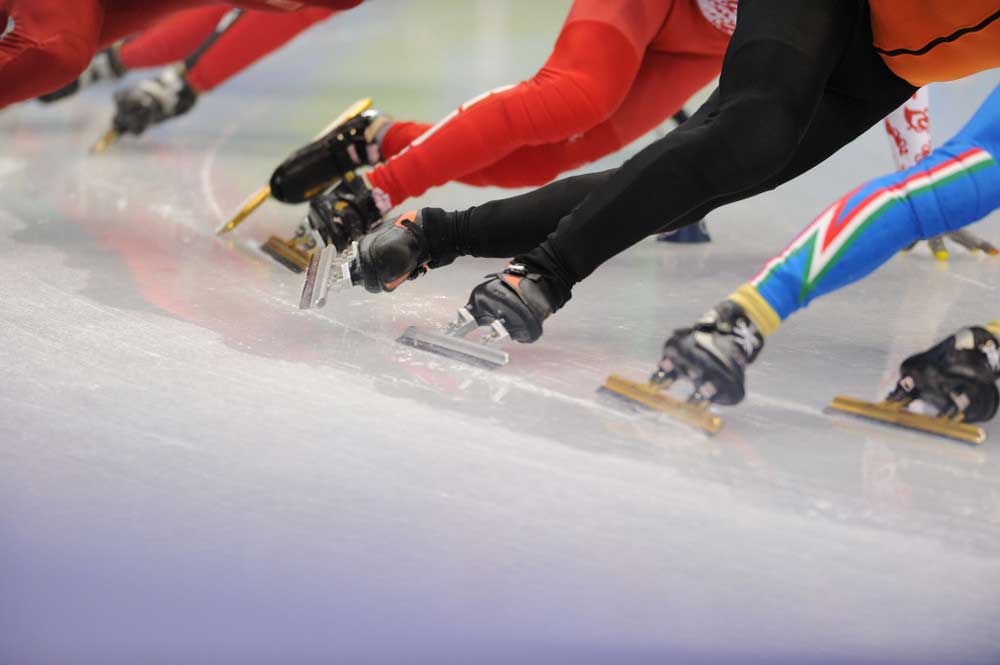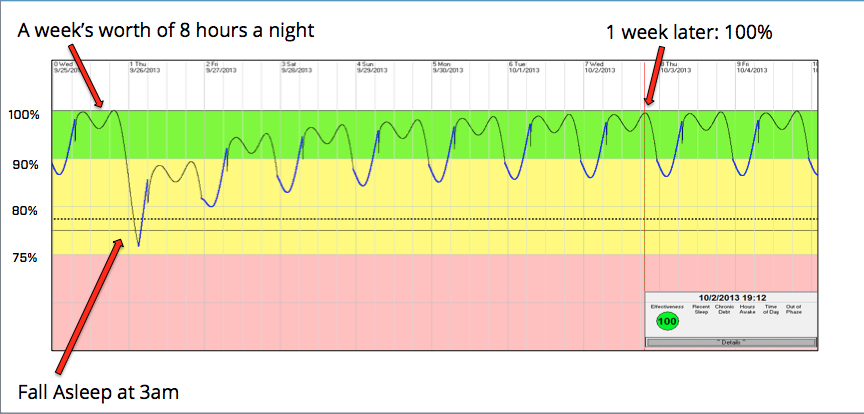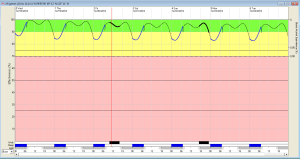We often refer to ‘circadian rhythm’ when we talk about the biological needs of our body to sleep. It sounds like a dance move, but it’s actually a science-y thing involving chemicals, hormones, cells and proteins all throughout your body. There are some interesting infographics that try to explain how it works, but we’ll try and simplify it here with words.
Circadian rhythm is defined as a natural cycle of changes the body goes through in a 24 hour period. It’s driven by a number of factors we cannot control, including the rise and fall of the sun.
The circadian rhythm dictates that there are ideal times for our body to sleep, eat, and do activities. The hormonal and chemical changes that your body goes through in it’s circadian rhythm support certain functions that you should be doing during certain phases of a 24 hour period.
Your circadian rhythm controls your:
Sleep / wake cycles – It wants you to wake up in the morning when the sun comes out and go to sleep at night when it’s dark out. As it gets darker out, your brain produces melatonin, which signals that it is time to go to sleep and makes you drowsy.
Digestion – Digestion slows down at night, when our bodies are meant to be resting and doesn’t need the energy generated from food.
Regeneration – Growth hormones increase at night, so your body can repair itself while you sleep.
Energy – Stress hormones rise in the morning when we need to start turning food and oxygen into energy and lowers towards end of day.
Body Temperature – Rises during the day and falls at night. When your temperature drops at night it signals your brain that it is time to go to sleep.
Ever notice that you feel more alert in the summer time when the sun is out longer? Or that you feel bloated if you eat a heavy meal too late in the day? That’s your circadian rhythm in effect.
Based on all these functions we understand that biologically we are programmed to wake up when the sun rises, be active and eat during the day, slow down in the evening, and let our bodies rest and regenerate at night. If you’re not going to bed and sleeping at night, you end up doing things that are out of sync with your circadian rhythm , which is why working night shifts, pulling all-nighters and travelling across time zones can be so disorienting.
Interested in learning more about data-driven fatigue management?


